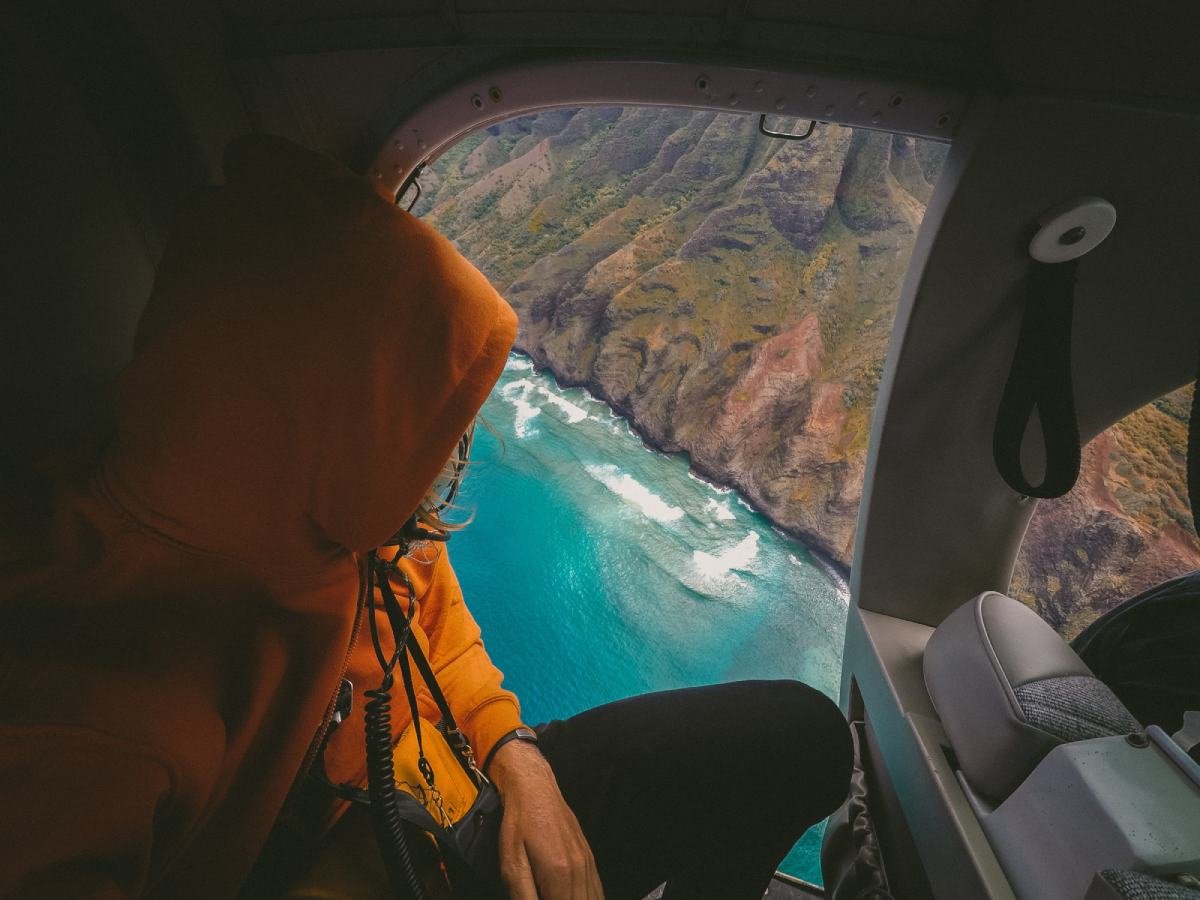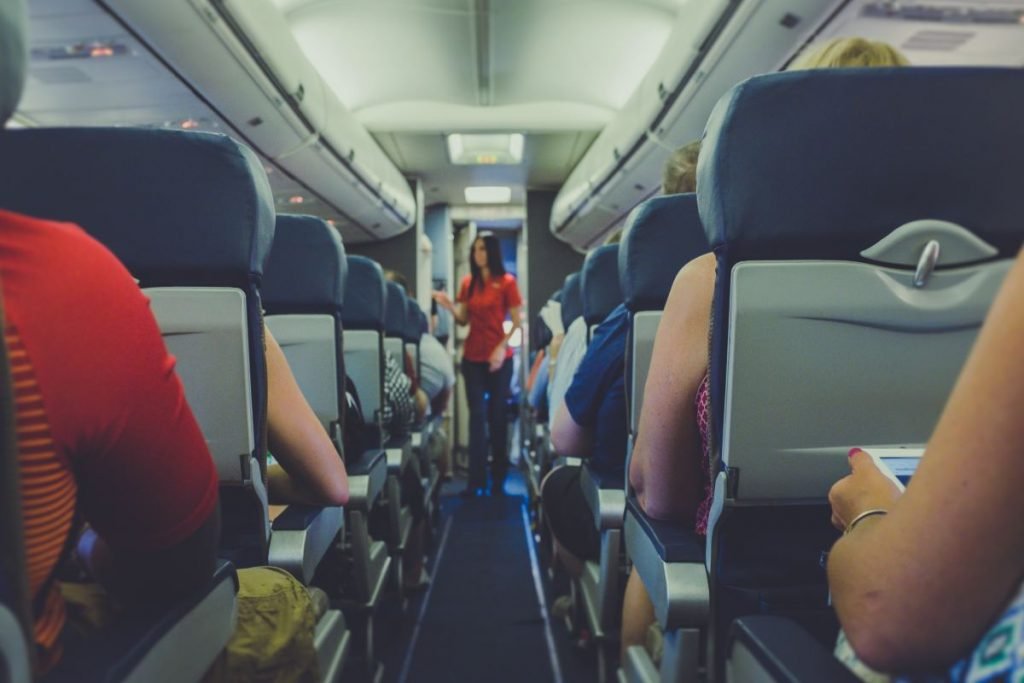
Traveling can require you to fly to your destination. However, for some people, this flying anxiety, even though you want to make the most out of your traveling experience.
There are some things that you can do to relieve your flying anxiety, but sometimes the fear of flying is related to an underlying anxiety disorder. If you experience anxiety in other situations or think you might have anxiety, check out this link for some advice from therapists.
Flying causes a lot of the symptoms of anxiety to worsen in severity or frequency, but there are plenty of cases of flight anxiety without an underlying anxiety disorder as well. In fact, studies show that up to 40 percent of people will have anxiety about flying each year.
Either way, you probably want to know how to reduce or eliminate your fears and worries. Before you look at the things that may help to ease your anxiety about flying, it is a good idea to look at the common symptoms as well as the causes of flying anxiety.

Flying Anxiety Symptoms
Flying anxiety can cause a wide range of distressing and uncomfortable symptoms. The severity of the symptoms can vary a lot between individuals, but many will share the same types of symptoms.
The anxiety may arise at the first thought of flying. Some people, only begin to have anxiety when they get to the airport or onto the plane. This anxiety could cause muddled thinking and disorientation.
A lot of people who have a fear or anxiety about flying will have an increased heart rate, chills, sweaty palms, and shakiness. It may seem like it is harder to breathe, and you may even experience chest pain.
It can also cause some gastrointestinal issues and nausea. Some people become very irritable or weary of socialization.
Flying anxiety can develop even further into a panic attack. This will be accompanied by intense feelings of fear, heart palpitations, and more severe worrisome thoughts.
Flying Anxiety Causes
A lot of different factors can contribute to anxiety about getting on a plane. In some cases, there does not seem to be an identifiable cause, while others do have something that can directly be tied to the anxiety.
Having a traumatic experience with planes can make it much more likely that you will develop anxiety about flying again. Turbulence, travel delays, bad weather, a crowded plane or airport, and other factors related to the airport or airplanes can contribute to the anxiety.
Your environment growing up can also play a role in your current anxieties. If your parents, siblings, or close friends have a fear of flying, you may adopt that fear as well.
Sometimes, the anxiety about flying arises from a completely different reason than the flight itself. You may be wary of situations that you relate to the air travel, or the flying could be a trigger because it reminds you of something else.
Some phobias can also increase or cause symptoms of anxiety when you are planning on traveling. Claustrophobia is prominent in flying fears because of the small and cramped space inside the airplane. Fear of heights may also worsen the symptoms.
Flying Anxiety Treatment
There are some tips and treatment options that you may want to keep in mind if you are suffering from anxiety about flying. Cognitive-behavioral therapy, CBT, is often used to change negative thoughts into logical or positive ones.
In addition, exposure therapy is commonly used because it will make you face your fears and gradually learn that there is not much to be afraid of. This can be done on a plane or with a flight simulator.
Support groups are a good choice for a lot of people as well. It will allow you to speak with others who share your fears. They can offer support and guidance. There are group classes that help you become more comfortable at airports or thinking about airplanes.
Medication can be helpful as well. Anti-anxiety medications help to relax the body and mind before and during a flight. Other medications address some of the symptoms directly as well.
Flying Anxiety Coping
There are some things that you can do on your own in order to reduce your anxieties. First, try to learn as much as you can about the flying process.
While this may seem like a catalyst for anxiety, it can help you understand the causes of turbulence, landing, and more to help you feel safe.
Try to identify thoughts that may not be very rational. A lot of people who experience flying anxiety will have extreme thoughts about what could happen that are far from realistic. Try to identify these so that you can change them to more logical thought processes.
Everybody has different triggers for their traveling or flying anxiety. It is a good idea to identify potential triggers. This may help you know about the aspects of flying that induce anxiety. After that, you will be more prepared and may even be able to avoid some of the triggers.
A lot of people do well by picturing a good flight. Try to use your imagination to visualize the entire trip. Picture yourself being calm and the flight is smooth.
Try to include as many sights, sounds, and feelings that you can. Evidence shows that this may help you be more relaxed and less anxious on your flight.
Other relaxation techniques can work as well. Deep breathing, progressive muscle relaxation (PMR), and mindfulness mediation can help you remain calm and in control.
While you may feel uncomfortable when you get on the plane, you may find that you are more at ease when you are doing something that you enjoy. You may want to listen to music or read a book. If it helps, you can also bring a snack.
Try to get up often during the flight. This can help you stay stretched and more comfortable. A lot of flyers with anxiety about flying will also have earplugs to avoid the anxiety-inducing sounds of the airplane.
If you do not have social anxiety, then you may find it beneficial to talk with the people around you on the flight. Just talking to them can help you relax. You can even tell them that you are nervous about the flight.
Conclusion
Flying can be fun and is necessary if you are going on a trip overseas. A lot of travelers have anxiety or panic attacks about flying.
A lot of times these anxieties are rooted in an underlying condition or illogical thoughts. Identifying the negative thoughts that are not realistic and using relaxation techniques may help you have a comfortable flight.
If you have severe anxiety about flying, then you can also speak to a therapist or other mental health professional.
Also read:
5 Expert Tips To Stay Fit While Traveling The World






